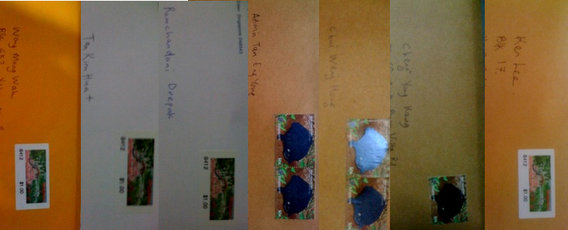The following post is excerpted from the Secrets of Singapore Property Gurus in which Kelvin Fong, team Leader of Powerful Negotiators @ PropNex, shared the following insights:

IT IS NOT easy to judge the best time to buy or sell a property. I always advise my clients that buying property is not about speculating but about long term investment.
If anyone has spare cash, it will be good to put it in this asset due to the scarcity of land and as a good hedge against inflation.
To me, the best time to invest is when no one dares to go in to buy, such as in 2008 and early January 2009.
In January 2009, when the market was at its lowest point, anyone who dared to enter the market would have been a big winner, like one of my clients who bought a four bedroom unit at The Coast @ Sentosa for only $1,250 psf, which is now easily worth more than $2,000 psf.
I find that currently it is still worthwhile to enter the market even though the price might have reached or exceeded the 2007 peak. My reasons are as follows:
1. Low interest rates
Even with a higher downpayment required currently, if the price is right, people will still invest due to low interest rates – as low as 0.88% – to leverage a passive income from their property. The returns can be more than what a fixed deposit account can offer.
For example, a unit at Southbank costing about $1.2 million can generate a rental income of about $4,800 per month, while the mortgage is about $3,000.
The buyer would enjoy a passive income of $1,800 per month, as compared to depositing his capital in a fixed deposit to get 0.4% interest or around $1,000 per year.

2. Property is an appreciating asset (eventually)
Barring any dramatic economic upheaval, property prices will likely stabilize or slowly increase in 2011. Most sellers will not want to sell at a lower price today, and are not under pressure from a large mortgage due to low borrowing costs.
The new 40% down payment rule will actually act as an incentive because buyers, having come up with this capital, will not want to sell.
Provided you do not sell your property during the downturn – as you will inevitably lose money on it – the value should increase. The key is that the buyer must have holding power if the market deteriorates, and should not buy unless they have the holding power to weather any market condition.
Prices will eventually rise again as we witnessed in 2008, when prices declined but eventually rose to, and in some cases surpassed, the 2007 peak.
3. Hard assets are better than paper assets
Many people choose to purchase property because of the asset’s enduring value, even during a financial crisis. People feel safer putting their money in a real asset rather than in financial instruments, as your real asset will always be there, even when market conditions are not good.
4. Market conditions don’t matter for the long term investor
Buyers who are looking at property as a long-term investment are less concerned about the market’s short term movements.
Property in Singapore will most likely appreciate in the long term due to the scarcity of land. While having a diversified portfolio is a good thing, as a long-term investment, property is generally going to make more money than other instruments. Investing in bonds, for example, is safe but your capital appreciation will be limited.
But property is not the ideal instrument for speculators. Not only has the government introduced measures to discourage property speculation, but you will be much more vulnerable to market fluctuations.
5. A property keeps on giving
Buying public housing in today’s market is not cheap, with HDB executive condominiums going at around $650 to 700 psf, close to mass market private property prices. A HUDC unit has already reached the $1 million mark, and the trend looks set to continue. Parents may see buying a property not only as a hedge against inflation, but also as an inheritance for their children.
If home prices continue to rise, and with the cost of construction materials rising too, there is fear that the younger generation could be priced out.
As for selling, I would think that if you have a reasonable profit and a better investment opportunity arises, that would be the right time to sell. Most owners will not sell today because of low interest rates as most of them are enjoying good passive income from owning the unit.
My favorite quote is: “It is not when you buy but when you sell that makes the difference to your profit.”

In Secrets of Singapore Property Gurus, Kelvin also shares:
* Impact Of The Fourth Round Of Measures And Property Price Forecasts
* Should Buyers Go Ahead With Their Purchase Despite The Measures?
* Should sellers sell their property now or keep holding on?
* How to find the right agent for you
* How to make money in Singapore property
* Mistakes novice investors make
* Promising areas and projects buyers should focus on
* Negotiating tactics for buyers
* How owners can maximize their selling price
* Do residential or commercial properties make better investments?
* His personal investment philosophy and experience

Hey, thanks for your support!
To get your copy (at S$28.00 only), pay through PayPal (button below) and we will send it to you by ordinary mail free of charge (only for Singapore addresses) and absorb the Paypal transaction fee.
Recent story: STOCKS or PROPERTIES: Which investment is easier to make money in?






